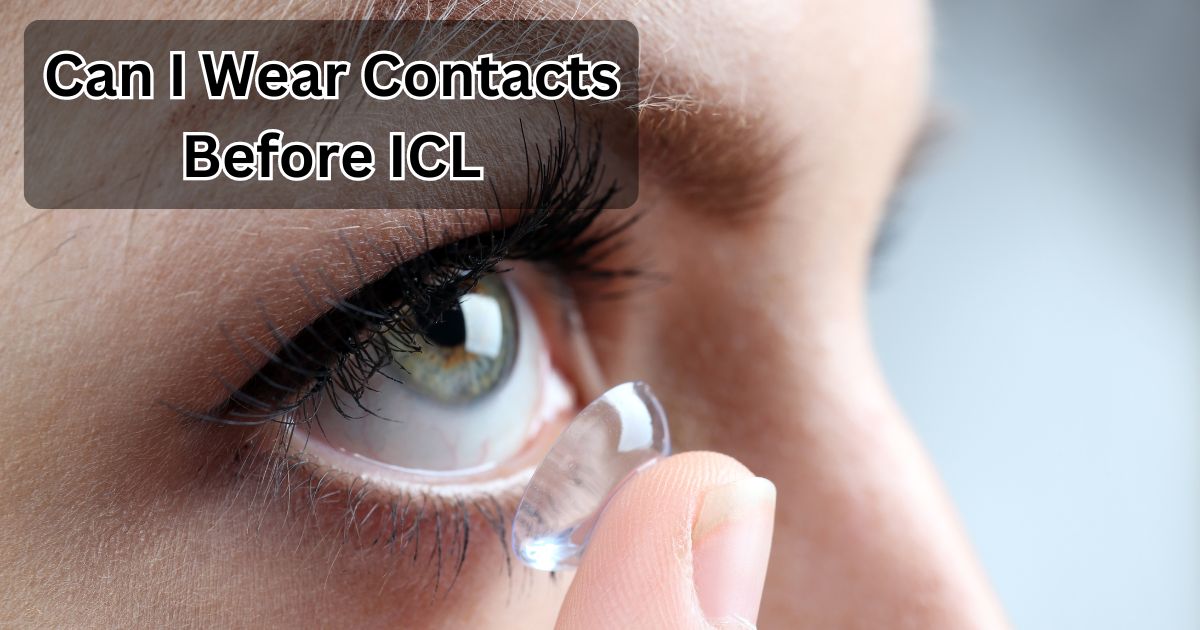Cataract surgery is a common and generally safe procedure to restore vision by removing the cloudy lens and replacing it with an artificial one. This surgery significantly improves the quality of life for many individuals suffering from cataracts, allowing them to regain clarity and focus in their vision. However, the recovery process is crucial to ensure the success of the surgery. During this time, following specific guidelines, including understanding food not to eat after cataract surgery, can significantly impact the healing process.
The role of diet in post-surgery recovery cannot be overstated. Proper nutrition supports the body’s healing mechanisms, reduces inflammation, and provides essential vitamins and minerals that promote tissue repair and overall eye health. Conversely, consuming the wrong foods can hinder recovery, cause inflammation, and increase the risk of complications. Therefore, it’s essential to know which foods to avoid to ensure a smooth and swift recovery after cataract surgery.
Foods to Avoid After Cataract Surgery
Spicy Foods
Spicy foods, while often delicious, can pose a significant risk to those recovering from cataract surgery. These foods can cause discomfort and irritation, potentially leading to increased inflammation in the body. This inflammation can affect the delicate tissues around the eyes, slowing the healing process and causing unnecessary discomfort.
Capsaicin, the compound that gives chili peppers their heat, can increase blood flow and potentially cause swelling, which is counterproductive to the healing process. To promote optimal recovery, it is advisable to avoid dishes that are heavily spiced or contain hot peppers, chili powder, or other intense spices. Instead, opt for milder flavors that are less likely to cause irritation or inflammation.
High-Sugar Foods
High-sugar foods can adversely affect the healing process after cataract surgery. Excessive sugar intake can lead to spikes in blood glucose levels, which can cause fluctuations in insulin and inflammatory responses in the body. These fluctuations can delay the healing of surgical wounds and increase the risk of infection.
Foods high in sugar, such as candies, pastries, and sugary drinks, should be avoided during the recovery period. Opting for natural sweeteners like honey or consuming fruits with a lower glycemic index can provide the necessary sweetness without the negative impact on recovery. Maintaining stable blood sugar levels is crucial for a smooth recovery, making it essential to limit the intake of high-sugar foods.
Salty Foods
Consuming too much salt can lead to an increase in blood pressure, which can, in turn, affect the delicate blood vessels in the eyes. High sodium levels can cause fluid retention, leading to swelling and increased pressure in the eye area, hindering the healing process after cataract surgery.
Salty foods such as processed snacks, canned soups, and fast foods are particularly problematic. These foods often contain high levels of sodium and preservatives that can exacerbate swelling and discomfort. Instead, focus on a diet rich in fresh, whole foods with minimal added salt. Using herbs and spices for seasoning can provide flavor without the negative effects of excess sodium.
Fried and Greasy Foods
Fried and greasy foods are notoriously unhealthy, and they are particularly detrimental to those recovering from cataract surgery. These foods are often high in unhealthy fats and can cause inflammation throughout the body, including the eyes. Additionally, greasy foods can lead to digestive issues, further complicating the recovery process.
Foods like fried chicken, French fries, and greasy burgers should be avoided. These foods can slow down the healing process by increasing inflammation and contributing to poor overall health. Instead, opt for healthier cooking methods such as baking, grilling, or steaming. These methods retain the nutritional value of foods without adding unhealthy fats that can impede recovery.
Processed Foods
Processed foods, including pre-packaged meals, snacks, and fast foods, are often laden with preservatives, artificial additives, and unhealthy fats. These components can negatively impact recovery after cataract surgery by promoting inflammation and providing little nutritional value.
The consumption of processed foods can lead to poor nutritional intake, which is essential for healing. Opting for whole, unprocessed foods like fresh fruits, vegetables, lean proteins, and whole grains ensures that the body receives the necessary nutrients to support tissue repair and reduce inflammation. Avoiding processed foods helps create a healthier internal environment conducive to recovery.
Dairy Products
While dairy products are a source of essential nutrients like calcium and vitamin D, certain dairy items can be problematic after cataract surgery. Full-fat dairy products can contribute to inflammation and mucus production, which can be uncomfortable and counterproductive to the healing process.
Foods like whole milk, cheese, and ice cream should be consumed in moderation or replaced with low-fat or non-dairy alternatives. These alternatives can provide the necessary nutrients without the added fats that can slow down recovery. Additionally, some individuals may experience lactose intolerance or sensitivity, which can lead to digestive issues and further complicate the healing process.
Red Meat
Red meat, particularly fatty cuts, can contribute to inflammation and increase the risk of complications after cataract surgery. High in saturated fats, red meat can lead to an increase in cholesterol levels and promote inflammatory responses in the body.
Opting for leaner sources of protein, such as poultry, fish, beans, and legumes, can provide the necessary nutrients without the negative effects associated with red meat. These alternatives are lower in unhealthy fats and can support a smoother recovery process. In the context of “Food Not to Eat After Cataract Surgery,” it’s important to avoid red meats and other high-fat proteins that could potentially hinder healing or exacerbate inflammation. Including plant-based proteins in your diet can also help reduce inflammation and promote overall health, aiding in a more effective recovery.
Caffeine
Caffeine, commonly found in coffee, tea, and certain soft drinks, can have stimulating effects that might not be ideal during the recovery phase after cataract surgery. High caffeine intake can lead to increased blood pressure and dehydration, both of which can hinder the healing process.
Limiting caffeine consumption and opting for decaffeinated versions of your favorite beverages can help manage these risks. Additionally, staying hydrated with plenty of water is crucial for recovery. Herbal teas and water-rich fruits can be excellent alternatives to caffeinated drinks, supporting hydration and providing additional nutrients beneficial for healing.
Alcohol
Alcohol consumption can negatively impact the recovery process after cataract surgery. Alcohol can dehydrate the body, disrupt sleep patterns, and interfere with medications prescribed post-surgery. These factors can collectively slow down the healing process and increase the risk of complications.
It is advisable to avoid alcohol during the initial recovery period to ensure optimal healing conditions. Staying hydrated with water and consuming nutrient-rich beverages can support the body’s natural healing processes. If alcohol consumption is resumed, it should be done in moderation and only after consulting with your healthcare provider.
Acidic Foods
Acidic foods, such as citrus fruits and tomatoes, can cause irritation and discomfort during the recovery phase after cataract surgery. These foods can increase stomach acidity and lead to digestive issues, which can be particularly uncomfortable during the healing process.
While these foods are healthy and nutritious, they should be consumed in moderation or substituted with less acidic alternatives. For example, opting for fruits like bananas and melons can provide essential vitamins and minerals without the high acidity. Balancing the diet with a variety of fruits and vegetables ensures adequate nutrient intake while minimizing potential discomfort.
Detailed Explanations of Harmful Effects
Inflammation and Its Impact on Healing
Inflammation is a natural response to injury, but excessive inflammation can impede the healing process after cataract surgery. Certain foods, such as those high in unhealthy fats, sugars, and additives, can exacerbate inflammatory responses in the body.
Foods like processed snacks, sugary treats, and fried items should be avoided to minimize inflammation. Instead, focus on anti-inflammatory foods such as leafy greens, fatty fish, nuts, and seeds. These foods contain essential nutrients and antioxidants that can help reduce inflammation and promote faster healing.
Blood Sugar Levels and Eye Health
Maintaining stable blood sugar levels is crucial for eye health and overall recovery after cataract surgery. High blood sugar levels can lead to fluctuating insulin levels, which can cause inflammation and slow down the healing process.
Consuming a balanced diet rich in whole grains, lean proteins, and vegetables can help maintain stable blood sugar levels. Avoiding high-sugar foods and refined carbohydrates can prevent spikes and crashes in blood glucose, supporting a smoother recovery. Monitoring blood sugar levels and making dietary adjustments as needed can significantly impact the healing process.
Dehydration and Its Effects on the Eyes
Dehydration can have detrimental effects on the eyes and the overall healing process after cataract surgery. Proper hydration is essential for maintaining the health and function of the eyes, as well as supporting the body’s natural healing mechanisms.
Consuming foods that are high in water content, such as cucumbers, watermelon, and oranges, can help maintain hydration levels. Additionally, drinking plenty of water throughout the day is crucial. Avoiding diuretics like caffeine and alcohol can prevent dehydration and ensure optimal recovery conditions.
Nutrient Absorption and Healing
The absorption of essential nutrients is vital for healing after cataract surgery. Certain foods can hinder nutrient absorption, while others can enhance it. For example, high-fat and high-sugar foods can interfere with the absorption of vitamins and minerals necessary for recovery.
Focusing on a diet rich in nutrient-dense foods, such as colorful vegetables, lean proteins, and whole grains, can ensure that the body receives the necessary vitamins and minerals. Foods like spinach, kale, and bell peppers are excellent sources of essential nutrients that support tissue repair and overall eye health.
Also Read: How Long Does Phentermine Stay in Your System
Nutritional Guidelines for Post-Surgery Recovery
Recommended Foods for Recovery
A well-balanced diet is essential for optimal recovery after cataract surgery. Consuming foods rich in vitamins, minerals, and antioxidants can support the healing process and reduce inflammation.
Recommended foods include leafy greens, such as spinach and kale, which are high in vitamins A and C. Fatty fish, like salmon and mackerel, provide omega-3 fatty acids that reduce inflammation. Whole grains, such as quinoa and brown rice, offer essential nutrients and fiber. Including a variety of colorful fruits and vegetables ensures a broad range of vitamins and antioxidants necessary for recovery.
Sample Meal Plans
Creating a daily meal plan that includes nutrient-dense foods can help support recovery after cataract surgery. Here is an example of a balanced meal plan:
- Breakfast: Oatmeal topped with fresh berries and a handful of nuts, served with a glass of orange juice.
- Lunch: Grilled chicken salad with mixed greens, cherry tomatoes, cucumbers, and a light vinaigrette dressing.
- Dinner: Baked salmon with quinoa and steamed broccoli.
- Snacks: Sliced apples with almond butter, carrot sticks with hummus.
This meal plan provides a variety of essential nutrients and antioxidants to support the healing process. Adjusting portion sizes and including additional snacks as needed can ensure adequate energy intake for recovery.
Hydration Tips
Staying hydrated is crucial for recovery after cataract surgery. Proper hydration supports the body’s natural healing processes and helps maintain eye health. Drinking at least eight glasses of water per day is recommended, but individual needs may vary.
Incorporating water-rich foods, such as cucumbers, watermelon, and oranges, can help maintain hydration levels. Herbal teas and low-sugar beverages can also contribute to overall fluid intake. Avoiding diuretics like caffeine and alcohol can prevent dehydration and support optimal recovery.
Supplements and Vitamins
In some cases, supplements and vitamins may be beneficial for recovery after cataract surgery. Essential vitamins such as A, C, and E, as well as minerals like zinc, play a crucial role in tissue repair and overall eye health.
Consulting with a healthcare provider before starting any supplements is essential to ensure they are safe and appropriate for your individual needs. In addition to supplements, focusing on a diet rich in nutrient-dense foods can provide the necessary vitamins and minerals to support the healing process.
Additional Tips for Post-Surgery Care
General Post-Surgery Tips
In addition to dietary considerations, other lifestyle changes can support recovery after cataract surgery. Resting and avoiding strenuous activities are crucial during the initial recovery period. Following the doctor’s instructions regarding medication and eye care is essential for a smooth recovery.
Protecting the eyes from bright lights and dust by wearing sunglasses and avoiding exposure to smoke and pollutants can prevent irritation. Keeping follow-up appointments with the healthcare provider ensures that any potential issues are addressed promptly.
Consulting with Healthcare Providers
Following medical advice is crucial for a successful recovery after cataract surgery. Regular check-ups and consultations with healthcare providers ensure that the recovery process is on track. Any concerns or complications should be addressed promptly to prevent further issues.
It’s important to communicate openly with healthcare providers about dietary concerns and any other factors that may impact recovery. They can provide personalized recommendations and adjustments to support a smooth and successful healing process.
Conclusion
Recovering from cataract surgery involves more than just resting; it requires careful consideration of dietary choices. Knowing what food not to eat after cataract surgery is crucial for a smooth recovery. Avoiding certain foods, such as spicy, high-sugar, salty, fried, and processed items, can significantly impact the healing process. Consuming a balanced diet rich in essential nutrients, staying hydrated, and following medical advice are crucial for a smooth recovery.
Following these dietary and lifestyle guidelines can help ensure a successful recovery after cataract surgery. By making mindful choices and prioritizing overall health, you can support the body’s natural healing mechanisms and enjoy a clearer, brighter vision. Remember, every step taken towards a healthier lifestyle contributes to a faster and more effective recovery.









